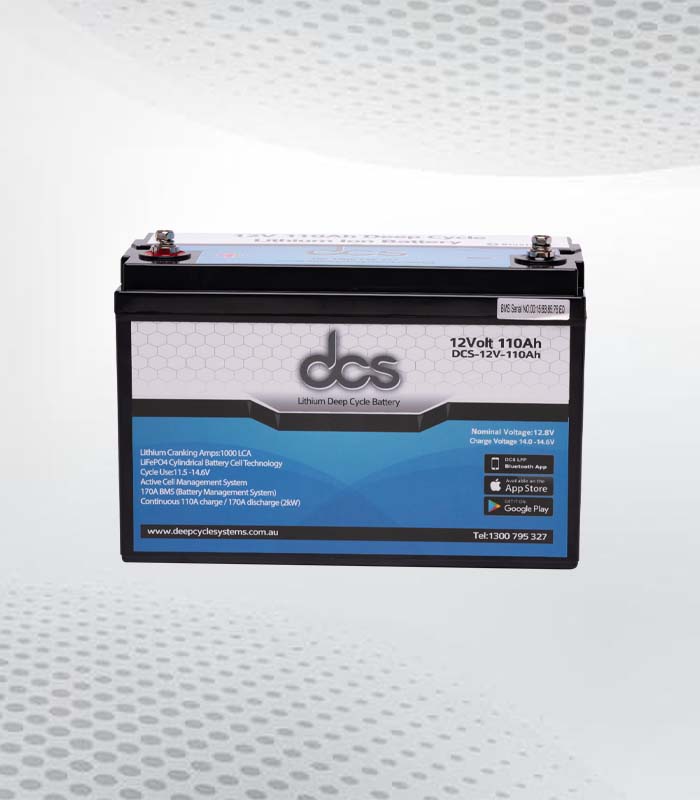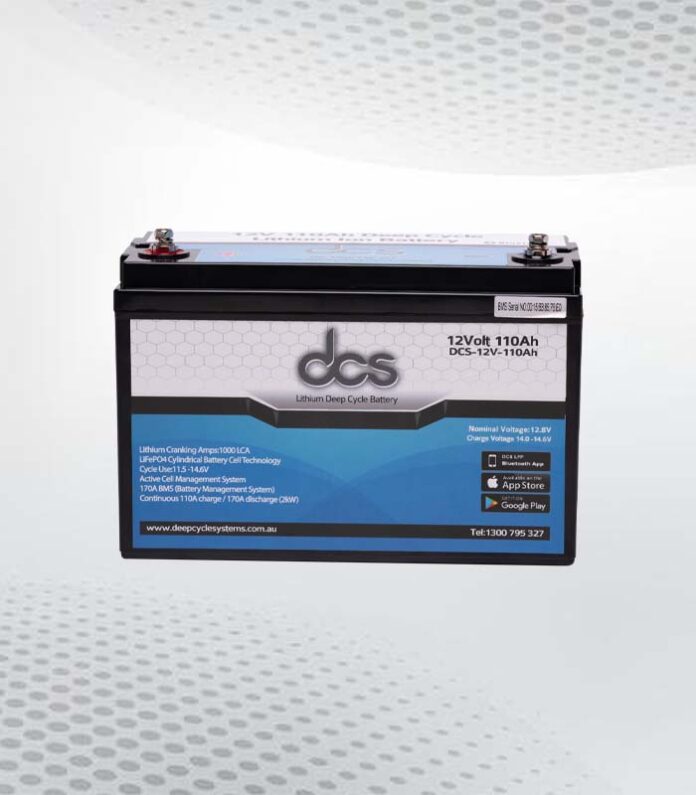With the ever-growing demand for efficient energy storage solutions, lithium-ion batteries have emerged as a game-changer in battery technology. Constant research and development have fueled advancements in lithium-ion battery technology, paving the way for greater energy density, longer cycle life, and safer performance. Innovations such as solid-state lithium-ion batteries are on the horizon as we look towards the future, promising even higher energy capacity and enhanced safety features. This blog post will explore the latest trends and developments in lithium battery innovations and their impact on the energy storage industry.
Advancements in Lithium-ion battery Technology
The ongoing research and development in lithium-ion battery technology have driven significant progress in recent years. These advancements have paved the way for increased energy density and extended cycle life, positioning lithium-ion batteries as a highly sought-after choice for various applications. One particularly intriguing development in lithium-ion battery technology is the emergence of solid-state lithium-ion batteries. These cutting-edge batteries boast the potential for even greater energy capacity and enhanced safety features compared to traditional lithium-ion batteries. Thanks to their solid electrolytes, solid-state lithium-ion batteries exhibit heightened stability and decreased susceptibility to issues such as overheating or combustion.
Making them a promising contender for future energy storage solutions. As scientists and engineers continue to explore the possibilities within lithium-ion battery technology, we can anticipate a wealth of forthcoming innovations. From advancements in energy efficiency to the creation of longer-lasting batteries, the horizon of lithium-ion battery technology appears brighter and more promising than ever before. The journey towards unlocking the full potential of lithium-ion batteries is exciting, and the possibilities for future breakthroughs are virtually limitless.
Benefits of Lithium Batteries
Lithium batteries have revolutionized how we power our portable electronics and vehicles, offering a level of convenience and efficiency previously unheard of. Their small size and light weight make them ideal for on-the-go use, allowing you to easily charge your devices wherever you are. In addition to their compact design, these batteries also boast a higher energy density and faster charging capabilities than traditional lead-acid batteries, making them a superior choice for powering various devices, from smartphones to laptops to electric vehicles.
Thanks to their innovative design and advanced technology, 12-V lithium-ion batteries ensure you never have to worry about running out of power when you need it most. Say goodbye to the days of lugging around bulky, heavy batteries and welcome the future of energy storage with open arms. Embracing the power of 12-V lithium-ion batteries means adopting a more efficient, convenient, and reliable way to keep your devices powered up and ready to go at a moment’s notice.
Whether camping in the great outdoors, working on a remote job site, or simply on the go throughout your day, 12-V lithium-ion batteries provide the peace of mind of knowing that your devices will stay charged and ready for use. With their long-lasting performance and lightweight design, these batteries are perfect for powering everything from smartphones and laptops to power tools and portable electronics. Switch to 12-V lithium-ion batteries and experience the freedom and reliability of cutting-edge energy storage technology.
Future Trends in Lithium-Ion Battery Innovations
As technology continues to advance, the future of lithium-ion batteries looks promising, with several key trends on the horizon:
- Fast-Charging Technology: Researchers are developing faster charging methods for lithium-ion batteries, which could significantly reduce charging times and improve overall efficiency.
- Improved Safety Features: Enhanced safety measures, such as advanced battery management systems and thermal monitoring, aim to prevent potential hazards like overheating and fires.
- Renewable Energy Storage Systems: The integration of lithium-ion batteries in renewable energy systems, such as solar and wind power, will play a crucial role in achieving a more sustainable energy future.
- Iota Devices and Smart Grids: The increased use of lithium-ion batteries in Internet of Things (Iota) devices and innovative grid technologies will drive further innovation in energy storage solutions, enabling more efficient and connected systems.
Key Players in the Lithium-ion battery Market
The lithium-ion battery market is a vibrant and ever-changing industry characterized by its dynamic nature and rapid growth. Industry giants such as Panasonic, LG CChem, and Samsung SDI are leading the charge, who have established themselves as key players with their innovative solutions and commitment to excellence. These companies have a proven track record of success and consistently push the boundaries of energy storage technology. Exciting new entrants are making waves in the lithium-ion battery market. Companies are quickly gaining recognition for their groundbreaking advancements in battery technology, challenging traditional norms and driving innovation forward.
As these emerging players continue to disrupt the industry, it will be fascinating to see how they shape the future of energy storage solutions. With their fresh perspectives and dedication to pushing the limits of what is possible, these up-and-coming companies are poised to significantly impact the market in the years to come. Their contributions will undoubtedly play a key role in shaping the future of energy storage and revolutionizing how we power our world.
Applications of 12v Lithium Batteries in Energy Storage
12v Lithium batteries are widely used in energy storage applications due to their high energy density, long cycle life, and fast charging capabilities. These batteries are commonly found in electric vehicles, renewable energy systems, and portable electronics. Using lithium-ion batteries in energy storage helps reduce greenhouse gas emissions and reliance on fossil fuels.
Electric Vehicles
Lithium-ion batteries are crucial in powering electric vehicles, offering high energy density, long lifespan, and rapid charging capabilities. They are essential for the transition towards cleaner and more sustainable transportation options.
Grid-Scale Energy Storage
Lithium-ion batteries are utilized in grid-scale energy storage systems to store excess energy generated during periods of low demand and release it during peak hours. This helps balance the grid and optimize energy usage.
Residential Solar Power Systems
Lithium-ion batteries are commonly used with solar panels to store solar energy when the sun is not shining. This enables homeowners to reduce their reliance on the grid and harness renewable energy for household needs.
Consumer Electronics
Lithium-ion batteries power various consumer electronics, including smartphones, laptops, cameras, and wearables. Their compact size, lightweight design, and high energy density make them ideal for portable devices that require long-lasting battery life.

Industrial Applications
In industrial settings, lithium-ion batteries are utilized for backup power, uninterruptible power supply (UPS) systems, and emergency lighting. They provide reliable and efficient energy storage solutions for critical operations in various industries.
Challenges Facing the Lithium-Ion Battery Industry
The lithium-ion battery industry faces several challenges that need to be addressed to ensure the continued growth and sustainability of energy storage technologies.
Safety Concerns
One of the primary challenges is safety, as lithium-ion batteries have been known to pose fire and explosion risks if not properly manufactured or handled. Ensuring the development of safe battery technologies and effective safety protocols is essential to mitigate these risks.
Supply Chain Constraints
The supply chain for lithium-ion battery materials, such as lithium, cobalt, and nickel, can be vulnerable to disruptions due to geopolitical factors, environmental regulations, or fluctuations in demand. Ensuring a stable and sustainable supply chain is crucial for the industry’s growth.
Environmental Impact
The production and disposal of lithium-ion batteries have environmental implications, including resource extraction, energy-intensive manufacturing processes, and hazardous waste generation. Implementing environmentally friendly practices and promoting responsible battery recycling is essential to minimize the industry’s environmental footprint.
Regulatory Challenges
The lithium-ion battery industry is subject to evolving regulations and standards governing battery safety, performance, and recycling. Adapting to regulatory changes and ensuring compliance with industry standards is crucial for manufacturers and stakeholders.
Technological Advancements
Keeping pace with rapid advancements in battery technology and meeting the demand for higher energy density, faster charging capabilities, and improved lifespan presents a challenge for companies in the lithium-ion battery industry. Continued research and innovation are essential to stay competitive in the market.
Innovative Solutions for Lithium-ion battery recycling
Innovative recycling technologies such as hydrometallurgical processes and closed-loop systems are being developed to recover valuable materials from used lithium-ion batteries. Establishing a circular economy for lithium-ion batteries aims to minimize waste and reduce environmental impact, promoting a more sustainable approach to energy storage.
- Hydrometallurgical processes: These processes involve the use of aqueous solutions to extract and recover metals from lithium-ion batteries, such as lithium, cobalt, and nickel. This method allows for the recovery of valuable materials for reuse in new battery production.
- Closed-loop systems: They focus on collecting end-of-life lithium-ion batteries, disassembling them, and reusing the recovered materials to manufacture new batteries. This approach reduces the need for raw material extraction and helps conserve resources.
The Environmental Impact of Lithium-ion battery Production
Lithium-ion battery production has significant environmental implications that need to be carefully considered. The entire lifecycle of a lithium-ion battery, from resource extraction to manufacturing processes and disposal of hazardous materials, can potentially harm the environment if not managed properly. One way to address these concerns is to adopt eco-friendly practices throughout production. This could include using renewable energy sources, such as solar or wind power, to reduce the carbon footprint of manufacturing lithium-ion batteries.
Implementing responsible waste management practices can help minimize the impact of hazardous materials on the environment. We can work towards a more sustainable future by taking proactive steps to mitigate the environmental impact of lithium-ion battery production. Companies in the industry must prioritize ecological responsibility and make conscious decisions that prioritize the health of our planet.
Conclusion
Advancements in lithium battery technology are driving innovation in energy storage solutions. As demand for renewable energy and electric vehicles grows, addressing safety, supply chain, and environmental impact challenges is crucial. By investing in recycling technologies and eco-friendly production methods, the lithium-ion battery industry can achieve a more sustainable future. Lithium-ion batteries are revolutionizing energy storage, creating a cleaner and more efficient energy landscape.
FAQs
How is lithium battery revolutionizing energy storage technology?
Lithium battery is revolutionizing energy storage technology by offering higher energy density, longer cycle life, and faster charging capabilities than traditional battery options. They are widely used in electric vehicles, renewable energy systems, and portable electronics, making them a key player in transitioning towards sustainable and efficient energy storage solutions.
What are the advantages of using 12-V lithium-ion batteries over traditional options?
12-V lithium-ion batteries offer a compact, lightweight solution with higher energy density and faster charging capabilities than traditional lead-acid batteries. They are ideal for applications in portable electronics, automotive systems, and renewable energy storage due to their long lifespan, reliability, and versatility.
Are there any recent innovations in lithium-ion battery technology that we should be aware of?
Recent innovations in lithium-ion battery technology include the development of solid-state lithium-ion batteries, which promise higher energy capacity and safer performance. Other advancements include fast-changing technology, improved safety features, and integration with Iota devices and smart grids, driving further innovation in energy storage solutions.
How do lithium-ion batteries contribute to the sustainability of renewable energy sources?
Lithium-ion batteries play a crucial role in enhancing the sustainability of renewable energy sources by providing efficient energy storage solutions for solar, wind, and other renewable power systems. They enable storing excess energy generated during peak production periods, ensuring a stable and reliable power supply even when renewable sources are not actively generating electricity.
| Other Good Articles to Read |
| Skank Blogs |
| Unreal Blogs |
| Tba Blogs |
| All City Forums |
| Dany Blogs |
| Refuge Blogs |
| The Music Blogs |
| Key Forums |
| The Big Blog Theory |
| Joe Blogs |
| Blogs 4 Me |
| Blogs Emon |
| Related Business Listings |
| Contact Directory |
| Local Business Profiles |


